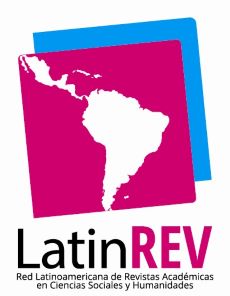MASCS and Constructivism. Foundation in the Aristotelian-Thomistic theory:
Act and Power from the principles.
DOI:
https://doi.org/10.29105/msc4.7-101Keywords:
MASC, Principle, cause-effect, rationality, truthAbstract
Rational nature is something that characterizes the human being as a unique and distinct individual. By virtue of this rationality, human beings seek to arrive at true knowledge of the world around them, and in that search, they have implemented efficient ways to reach that knowledge. We call it a method. The love of knowledge has been called philosophy since the pre-Socratic philosopher Pythagoras. In order for knowledge to be considered knowledge, it must be justified by reason. The cause justifies the effect, and the principle is par excellence a cause. In order for knowledge to be perceived as true, it must appear to be true, that is, it must be plausible, which implies starting from a justification of what we call knowledge, and a good starting point is precisely to resort to principles as guiding criteria of reason. It is intended, with this knowledge, to apply causalism and principialism in the MASCs as an efficient method to achieve a very wise construction with fair and true results that allow a harmonious coexistence between human beings
Downloads
References
Adame Goddard, J. (1998). Filosofía Social para Juristas. México. UNAM.
Águila, J. G. (2018) El nuevo sistema de justicia penal y el concepto de libertad en la economía de las resoluciones judiciales. En M. Flores. (Coord.) Consideraciones Principalistas sobre Derechos Humanos (p.p. 13-25). Guadalajara, México. Astra Ediciones.
Caeiro, M. (2017). Aprendizaje Basado en la Creación y Educación Artística: proyectos de aula entre la metacognición y la metaemoción. Recuperado de 19 de mayo de 2021 de https://revistas.ucm.es/index.php/ARIS/article/view/57043/52918
Carrasco, G. (s.f..) Interpretación jurídica: Casos fáciles, casos difíciles. Consultable en: https://app.vlex.com/#WW/vid/794463369
Ceruti. R. A. (2019). El ser de las cosas como categoría jurídica. Consultable en https://app.vlex.com/#search/jurisdiction:MX+content_type:4/el+ser+de+las+cosas+como+categor%C3%ADa+jur%C3%ADdica/WW/vid/58043287
De Aquino, T. (2000). El ente y la esencia. Nuevo León. Edición de la Universidad Autónoma de Nuevo León.
De Aquino, T. (2001). Summa de Teología. España. Biblioteca de autores cristianos.
Descartes, R. (2013). Discurso del método. México. Grupo Editorial Tomo.
Dworkin, R. (2012). Los derechos en serio. México. Ed. Ariel.
Fine, C. (2006). A mind of its own. New York, London. W.W. Norton & Company.
Gilson, É. (2005). Las constantes filosóficas del ser. España. Ed. Eunsa.
Hawking, S. (2019). A hombros de gigantes. Recuperado de 25 de abril de 2022 de https://ww2.lectulandia.com/book/a-hombros-de-gigantes-ed-ilustrada/
Hessen, J. (2014). Teoría del conocimiento. México. Ed. Leyenda.
Instituto de Investigaciones jurídicas de la UNAM (2004). Enciclopedia jurídica mexicana. México. Ed. Porrúa.
Laercio, D. (2006). Vidas de los filósofos más ilustres. México. Grupo editorial Tomo, S.S. DE C.V.
Mustaca, A. E. (2017). Frustración y conductas sociales. Recuperado de 08 de junio de 2021, de Doi: http://dx.doi.org/10.12804/revistas.urosario.edu.co/apl/a.4643 DOI: https://doi.org/10.12804/revistas.urosario.edu.co/apl/a.4643
Pacheco Inclán, R. (2016). Los derechos humanos a la luz del principio lógico de razón suficiente. Consultable en https://app.vlex.com/#search/jurisdiction:MX+content_type:4/De+la+esencia+de+las+cosas/p5/WW/vid/730726369
Pérez Tamayo, R. (2009). ¿Qué es una persona? En: Álvarez del Río, A. (2009). El desafio de la bioética. Consultable en https://app.vlex.com/#WW/vid/587369142
Russell, B. (s.f.). Historia de la filosofía occidental Tomo I. (s.d.). Ed. Austral. (E. Book.)
Think Insights (2022) BANI: A new framework to make sense of a chaotic world? Recuperado de https://thinkinsights.net/leadership/bani/.
Downloads
Published
How to Cite
Issue
Section
License
Copyright (c) 2024 José Gerardo Águila Carretero

This work is licensed under a Creative Commons Attribution-NonCommercial 4.0 International License.
Los autores/as que publiquen en esta revista aceptan las siguientes condiciones:
a. Los autores/as conservarán sus derechos de autor y garantizarán a la revista el derecho de primera publicación de su obra, el cual estará simultáneamente sujeto a la Licencia Creative Commons Atribución-NoComercial 4.0 Internacional. que permite a terceros compartir la obra siempre que se indique su autor y su primera publicación esta revista.
b. Los autores/as pueden realizar otros acuerdos contractuales independientes y adicionales para la distribución no exclusiva de la versión del artículo publicado en esta revista (p. ej., incluirlo en un repositorio institucional o publicarlo en un libro) siempre que indiquen claramente que el trabajo se publicó por primera vez en MSC Métodos de Solución de Conflictos.
c. Se permite y recomienda a los autores/as a publicar su trabajo en Internet (por ejemplo en páginas institucionales o personales) posterior al proceso de revisión y publicación, ya que puede conducir a intercambios productivos y a una mayor y más rápida difusión del trabajo publicado (Véase El efecto del acceso abierto).







 MSC Métodos de Solución de Conflictos Vol. 5 Núm. 9, Julio-Diciembre 2025, es una publicación semestral editada por la Universidad Autónoma de Nuevo León, a través de la Facultad de Derecho y Criminología. Dirección de la publicación: Av. Universidad s/n Cd. Universitaria C.P. 66455, San Nicolás de los Garza, Nuevo León, México. revistamsc.uanl.mx, revistamsc@uanl.mx. Editor responsable: Dr. Francisco Javier Gorjón Gómez. Reserva de Derechos al Uso Exclusivo núm. 04-2023-110310161600-102 ISSN 2992-8370, ambos otorgados por el Instituto Nacional del Derecho de Autor. Responsable de la última actualización: Dr. Paris Alejandro Cabello Tijerina, Facultad de Derecho y Criminología Av. Universidad s/n Cd. Universitaria C.P. 66451, San Nicolás de los Garza, Nuevo León, México. Fecha de la última modificación: 28 de julio de 2025.
MSC Métodos de Solución de Conflictos Vol. 5 Núm. 9, Julio-Diciembre 2025, es una publicación semestral editada por la Universidad Autónoma de Nuevo León, a través de la Facultad de Derecho y Criminología. Dirección de la publicación: Av. Universidad s/n Cd. Universitaria C.P. 66455, San Nicolás de los Garza, Nuevo León, México. revistamsc.uanl.mx, revistamsc@uanl.mx. Editor responsable: Dr. Francisco Javier Gorjón Gómez. Reserva de Derechos al Uso Exclusivo núm. 04-2023-110310161600-102 ISSN 2992-8370, ambos otorgados por el Instituto Nacional del Derecho de Autor. Responsable de la última actualización: Dr. Paris Alejandro Cabello Tijerina, Facultad de Derecho y Criminología Av. Universidad s/n Cd. Universitaria C.P. 66451, San Nicolás de los Garza, Nuevo León, México. Fecha de la última modificación: 28 de julio de 2025.